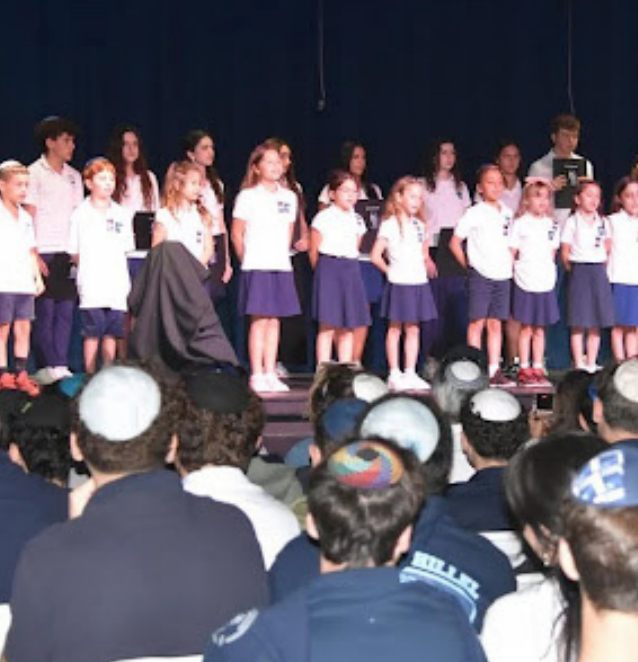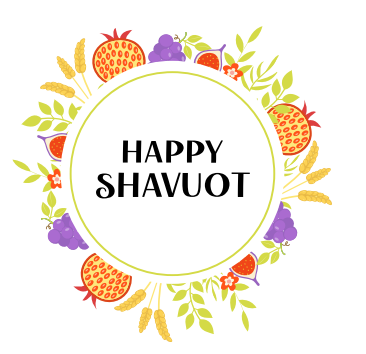Since the establishment of the State of Israel in 1948, the Jewish homeland has lost over 23,000 brave soldiers and civilians to war and acts of terrorism. 23,000. Alongside those 23,000 souls whose lives have been stripped from them in the most unjust of circumstances are thousands more bereaved families and friends of the deceased whose cries of mourning are yet to cease. And alongside those relatives in constant mourning are the Jewish people as a whole, crying together in hopes that the sacrifices of the fallen will always be remembered.
On April 30, 2025, Scheck Hillel’s high school students gathered together in the cafeteria to commemorate Yom Ha’Zikaron, Israel’s memorial day. Led by Morah Eti Levy, nine students from grades 9-11 as well as a number of faculty members took to the stage to recite words and prayers honoring the grieving and the deceased. From letters written by fallen soldiers to excerpts derived from Yarden Bibas’s eulogy to his late wife and children, one resonant message was repeatedly conveyed to audience members as the ceremony progressed: Never forget those who fought for our freedom. In the midst of these recitations, lower school students under the guidance of second-grade teacher Alexa Altman sang songs, namely Amit Farkash and Yiftach Kerzner’s “מיליון כוכבים” (“a million stars”), in honor of those lost in combat.
Among the students on stage was junior Amit Elbaz-Starinsky, daughter of Consul General Maor Elbaz-Starinsky, who offered insights into the experience of being a student speaker. “Speaking in Yom Ha’Zikaron taught me what really matters in life–to appreciate every moment and to always remember the people who fought for us,” she said.
“Speaking in the assembly was an incredible honor and privilege for me,” added sophomore Andy Chocron, one of the ceremony’s two student leaders. “As a proud Jewish student, it is important I spread awareness and pride for my religion. I am so grateful to have done just that in the assembly.”
The practice of observing and commemorating the fallen has existed long before the establishment of an official Israeli state. Spanning from the construction of the first Jewish neighborhood outside of Jerusalem in 1860 to the War of Independence in 1948, thousands gave their lives protecting their Jewish brothers and sisters for the slim chance that their descendants would enjoy a homeland for themselves. Even today, as we struggle tirelessly to protect the state of Israel from enemy fronts, we keep in mind what our ancestors gave for us to embrace the Israel we know and love today. We must continue to ensure that their sacrifices were not in vain.





